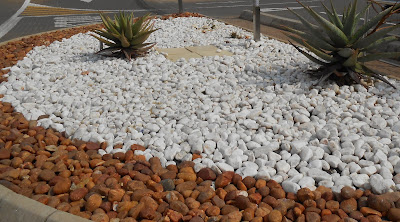
One of the very few blog posts I’ve done this year was a
piece on “a resolution less year”. I will not forget putting my thoughts down
to emphasize that there is no such thing as having a new year without resolutions,
because when we choose not to have a plan, then there is always the plan which
is “not having a plan.!”. I’d thought
that wasn’t just going to be another blog by me, but more of a wake-up call that
I needed to sit down and veraciously reflect on what exactly I wanted to do
with my new year. And of course with a lot of phobia around 13, triskaidekaphobia,
I set out to have a year in my life where for once I would live without
thinking too much about the next day. I wanted to see and know what it feels
like to have no resolutions and live a life of gratification after all is said
and done. I think that marked the point where I got it all wrong. I may have
lived through the year, but after scoring a 31% in a methodology I devised for
myself (as a rudimentary way of testing and re-analyzing oneself or appraising
one’s overall performance for a year), I wonder how I even made it through the
year without a burn-out.!
Yes, I scored a 31 %! May be I was too hard on my
assessment, or maybe I haven’t incorporated the right parameters in my “index”.
Well, I can always get a zillion reasons to raise my score to at least a 60%.
Thanks to my best friend Carol for reminding me just the other day that I need
to start putting down my 2014 resolutions. And I did it…3 days letter, perhaps
out of a huge sense of guilt that ailed in me for leading such an awkwardly
planned year. There were high times cum the good times which I cannot overlook,
but I would say those were highly galvanized by the friends and focused folks
around me.
How about taking a quick look into the year that was 2013.
With just about a week to cross over
into 2014, which I so anxiously look forward to, because I want to better my score,
and have an easier time coming to terms with what I will score, God-willing,
should we cross into 2015.
January 2013 sneaked
in on a terrible note for me and my family. Losing my all-time favorite uncle
and dad, Uncle Martin on the 8th of January was a low moment for us.
Seeing my aunt and her kids more heart- broken more than I, and quarrels
erupting over the wake of the funeral wasn’t the kind of send-off we’d wanted for
such a respectable man in the community. But that is what we got, a bad scene
of hate marauding a peaceful family. I felt scathed that my aunt Monica had to
endure all that drama. And I ended up getting into bad terms with part of our
larger extended family for what I believed was a betrayal to our family. I
haven’t spoken to the “betrayers” to this very date. And maybe I never will, unless
they visit my aunt to make an honest apology for the shameful act they did.
Later in the month on 11 January we would have the first ever “Presidential
debates night in Kenya”, an event organized by the media houses in Kenya. It
was an eye-opening forum for Kenyans to see how knowledgeable to issues
affecting our community the aspirants were. I remember catching the show at the
comfort of my hostel TV room alongside other students each with a different
opinion but all of us bonded by the love for our mother country. The
environment subject wasn’t particularly given attention and I wasn’t happy.
February saw me set my feet in the land of a thousand hills
in the heart of Africa, Rwanda. I’d always wanted to see Rwanda, the beautiful
people and the rich culture. And I got nothing short. I would later do a blog of my trip (which
forms the short list of the very few posts I made in the year). And it was an honor
meeting the then executive director of FAWE Africa, MS. Oley a Gambian
intellectual who has noticeably stood out for her contribution towards the education
of girls across the continent.